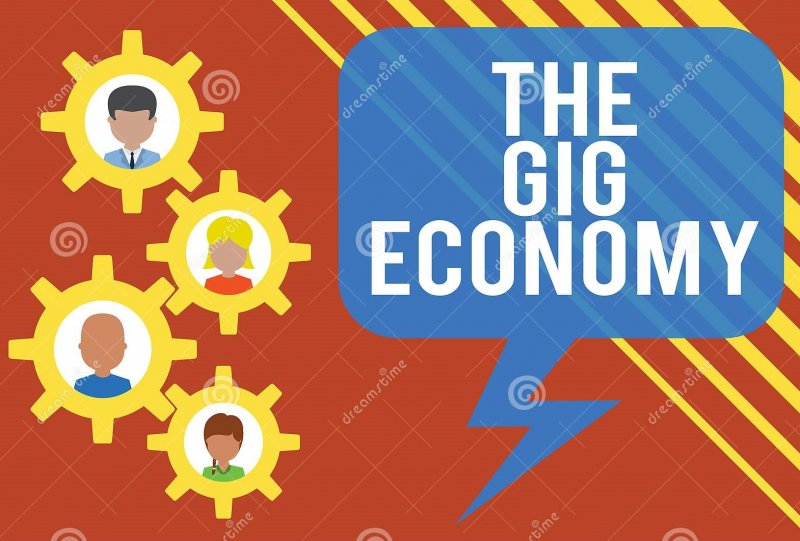Reports from the International Labour Organization (ILO) and the JPMorgan Chase Institute describe the plight of different types of workers in the gig economy who struggle to earn even the minimum wage.
Karl Marx defined the proletariat as workers "without any means of production" who were increasingly impoverished by the rise of machines. In that classic form, Marx's favorite class does not really exist in today's rich world, except in the so-called "gig economy," also known as the sharing economy.
Reports from the International Labour Organisation (ILO) and the JPMorgan Chase Institute describe the plight of different types of workers in the gig economy who struggle to earn even the minimum wage in their countries by working hard for giant technology platforms.
There are two types of gig economy work: web-based, which can be done from anywhere, and location-based, which is done in the physical world but distributed through market-style applications. The ILO report addresses the lower web-based work found on digital labor platforms such as Amazon Mechanical Turk and its smaller competitors.
The ILO surveyed 3,500 workers in 75 countries and found that last year the average worker on five of those platforms earned US$4.43 per hour, or just US$3.31 per hour when all unpaid time is taken into account - approximately 20 minutes per hour - which is used searching for orders, researching clients, taking test scores and writing reviews. Even that is relatively generous.
Another study published last year calculated that "turkers", as workers on the Amazon platform are known, earned an average hourly wage of US$2.
Nearly two-thirds of U.S. "turkers," according to the ILO study, earned less than the federal minimum wage of US$7.25 per hour, and only 7% of Germans on the Clickworker platform earned the legal minimum wage of 8.84 euros (US$10.40) per hour.
This would perhaps be marginally tolerable if "crowd workers", or workers on digital platforms, only went online to supplement the income from other jobs. Nevertheless, 32% of ILO respondents obtained their primary income from the platforms.
These mostly educated people spend many hours completing questionnaires for academic researchers, transcribing audio, even moderating content for social networks, which means watching violent videos or reading hate-filled publications all day.
This is not the best job, and some of them can even have a prolonged psychological impact, but crowd workers live in a world without the basic worker protections guaranteed even to those doing the least specialized jobs in the real world.
Not only do they earn less than the minimum wage, but they are also not protected against non-payment. No one owes them an explanation when their job is rejected or when they fail a test or receive an unfavorable rating.
It may seem absurd to demand sick days and paid vacation for crowd workers. However, the ILO argues that at least some of them should be considered employees, not independent contractors because they are penalized if they refuse jobs and face non-negotiable prices and quality standards.
Similar criteria have been applied in courts in several countries, often successfully, to location-based gig economy companies such as Uber and Lyft.
The JPMorgan report refers to these location-based platforms, which have greater visibility than web-based platforms and have advanced on the path of worker impoverishment described by Marx. Click-through workers" complain that increased competition for higher-paid orders forces them to search for more platforms, and there is still no data on the decline in revenue from the activity.
JPMorgan's location-based services study, using data on platform payments to Chase checking accounts, shows that, on average, gig workers earned less last year than in 2015, whether they were Uber drivers, cleaning offices or renting their homes on Airbnb. The decline was particularly significant for drivers.
"Regardless of whether the drop in earnings was caused by a decline in wages or hours or both, it indicates that driving is increasingly less likely to replace a full-time job over the past five years as more drivers enter the market," the report said.
Along with the lack of worker protections, this makes the jobs of the location-based gig economy as hellish as those of turkers and other click workers.
It is possible, of course, that the platforms of the gig economy were never designed to provide the full-time work that pays the rent and feeds the children. If they only work for occasional supplementary income, it is an excuse for a take-it-or-leave-it approach to work. Or is that it? Should a modern society tolerate jobs that do not include workers' rights and lack the possibility of dignified survival for those who cannot find other employment?
Moreover, even if such jobs are allowed, should they be offered by large technology companies that deliver huge returns to shareholders even if they do not make a profit?
The market, in its pure and unadulterated form of the Marx era, cannot provide satisfactory answers. JPMorgan's report says that the portion of the gig economy covered by its data is "roughly comparable to the size of the entire information sector" of the U.S. economy in terms of numbers of workers. However, all of these people have found themselves exempt from the human norms that developed over centuries of interaction, both peaceful and violent, between labor and capital. That is an anomaly for legislators and regulators to try to correct. Even if this results in less available work, which is not a fact since the tasks will continue to exist, gig workers should also be living in 2020, not 1848, the year Marx and Friedrich Engels published the Communist Manifesto.
PDF version of the newsletter, you can be downloaded here:
https://worker-gig.eu/files/320ed701/en_feb_2020_gig_econom_a.pdf














